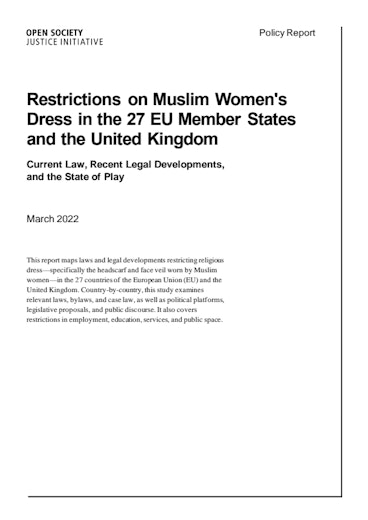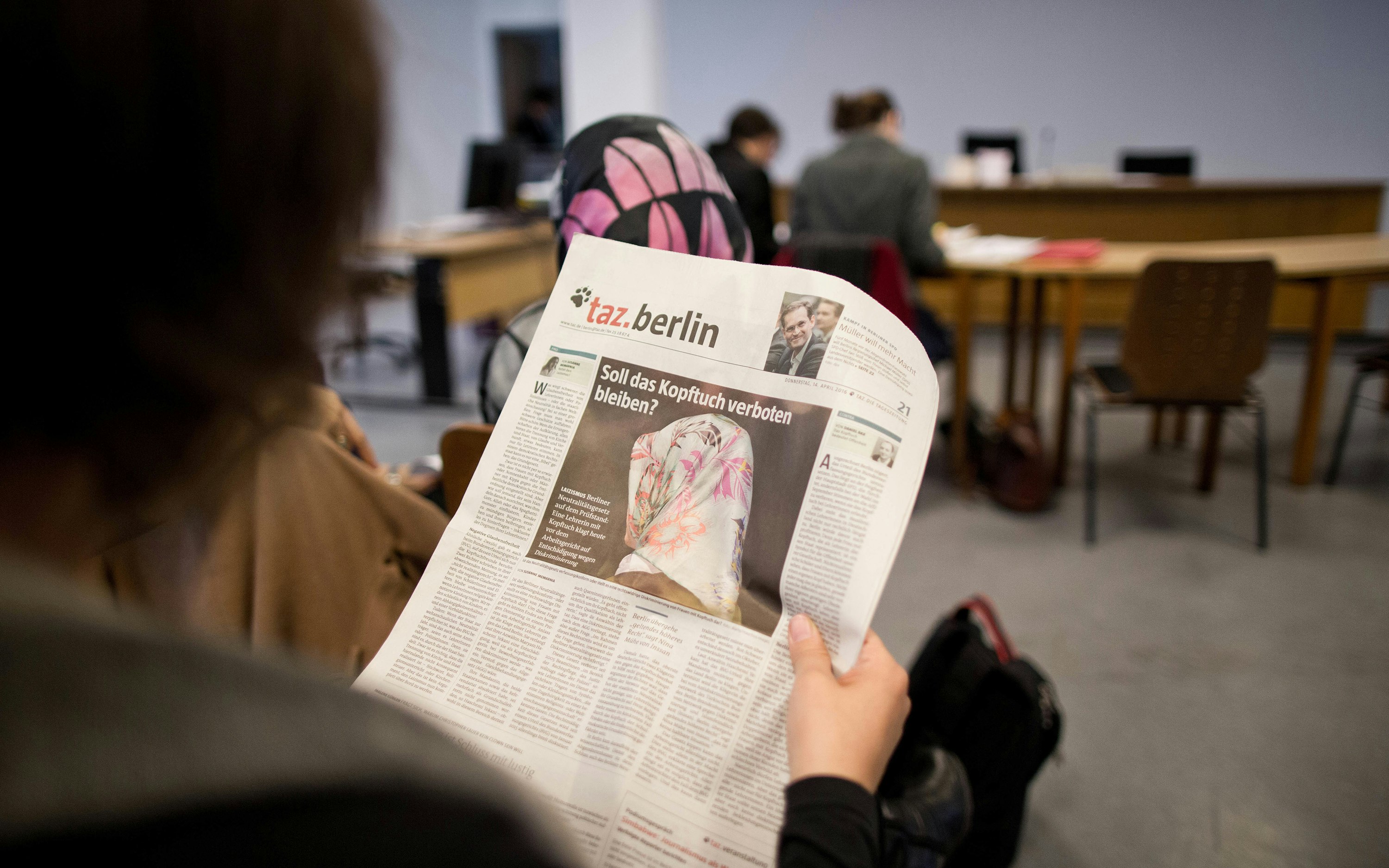One-Third of EU Countries Have National or Local Bans on Muslim Women’s Dress
BRUSSELS—Nearly one-third of all the member states of the European Union have placed legal restrictions on Muslim women’s religious dress at either the local or national level, according to a new report published today by the Open Society Justice Initiative. In addition, bans on headscarves, veils, and other Muslim women’s religious dress by both businesses and public institutions such as schools have been reported in nearly half of the EU’s countries.
The report, Restrictions on Muslim Women’s Dress in the 28 EU Member States, fills a much-needed research gap because it looks both at national laws and legal developments and at policies and practices in private employment, education, services, and public space.
However, despite the enactment of legal restrictions on Islamic dress in eight out of the 28 EU members, the report also highlights the continued resistance to such measures elsewhere in the EU. Of the 28 member countries, six have seen no legal or administrative bans or attempted bans of Islamic dress in private institutions. In 22 countries, proposals for such bans have been rejected either by legislators or by the courts.
Maryam H’madoun, policy officer at the Open Society Justice Initiative and lead author on the report said, “While a few EU countries have turned creating restrictions on Muslim women’s religious dress into a national issue, this report shows that this is not the European norm. We hope the examples of pluralism and inclusion cited here will prove useful to the policymakers across Europe who are fighting back against the poisonous anti-Muslim rhetoric of the far-right and nationalist parties.”
Malin Bjork, member of the European Parliament (GUE/NGL), is showing her support for the new report by hosting an event on April 25 at the European Parliament with grassroots and civil society organizations. She noted, “In times of growing Islamophobia it is ever so important to stand up against any attempts to stigmatize and discriminate against Muslim women. When companies are given the green light to ban headscarves, it leaves the door wide open for discrimination against Muslim women in the workplace. No company, person, or institution should have the right to tell women how to dress. These are our bodies and our choices.”
MEP Soraya Post (S&D) also showed support for the research findings. “This report is important and timely. The right to freedom of religion or belief is a fundamental right of every human being under Article 18 of the Universal Declaration of Human Rights. Restrictions on religious symbols such as the headscarf have a negative and disproportionate effect on Muslim women, who already face some of the highest levels of discrimination and difficulties. They also put an unfair choice on Muslim women, such as in employment, for example, where Muslim women in certain member states are forced to decide whether to either exercise their freedom of religion or their right to employment.”
Julie Pascoet, senior advocacy officer at the European Network Against Racism (ENAR), said, “It is striking to see evidence of how these bans on religious dress may be framed as though they apply to all religious groups equally, but in fact clearly target visibly Muslim women. The ‘neutrality’ argument, although important, is often used only as an excuse to discriminate against Muslim women. We see the results of our own Forgotten Women report confirmed, namely that Muslim women bear the brunt of Islamophobia in Europe, at the intersection of gender, ethnicity and religion.”
Related Work
Restrictions on Muslim Women's Dress in the 27 EU Member States and the United Kingdom
This policy brief and accompanying fact sheet map EU and UK laws and pending legislation restricting religious dress—specifically the headscarf and face veil worn by Muslim women.

Case Watch: German Court Sides with Muslim Women Teachers Over Discriminatory Headscarf Ban
A recent judgement by Germany's top labor court is expected to end a decades old court battle over headscarf bans for teachers.

EU Top Court Fails to Guarantee Muslim Women’s Right to Wear a Headscarf at Work
The Court of Justice of the European Union has ruled that it is not direct discrimination on grounds of religion for an employer to bar workers from wearing religious clothing.